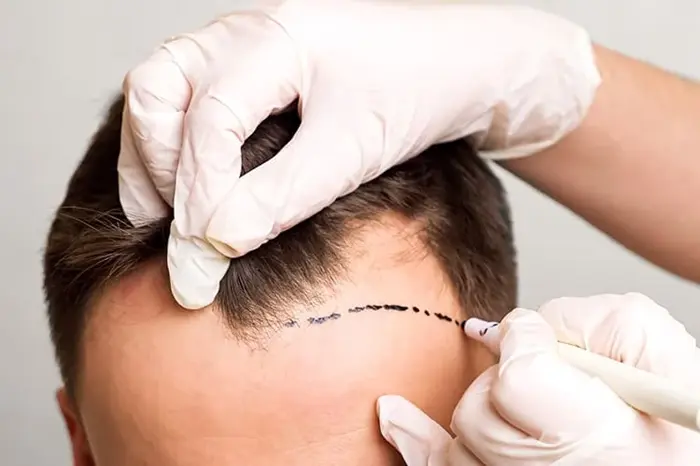Hair transplants have become a popular solution for individuals seeking to restore their hairline and regain confidence. To ensure the success of the procedure and minimize complications, it is crucial to prepare properly. This preparation involves avoiding certain activities and substances that could affect the surgery and recovery process. Here are eight things you should avoid before a hair transplant to achieve the best possible results.
Understanding Hair Transplant
What is a Hair Transplant?
A hair transplant is a surgical procedure that involves moving hair follicles from a part of the body (usually the back or sides of the scalp) to the balding or thinning areas. This procedure can be performed using different techniques, such as Follicular Unit Transplantation (FUT) or Follicular Unit Extraction (FUE).
Importance of Pre-Operative Care
Proper preparation before the procedure can significantly influence the outcome of a hair transplant. By avoiding certain substances and activities, you can enhance the effectiveness of the surgery and reduce the risk of complications.
1. Avoid Blood Thinners
Common Blood Thinners
Aspirin: Often taken for pain relief or as a blood thinner.
Ibuprofen: Commonly used for pain and inflammation.
Certain Supplements: Such as fish oil, vitamin E, and ginkgo biloba.
Why Avoid Them?
Blood thinners can increase the risk of bleeding during and after the surgery. Excessive bleeding can interfere with the transplant process and complicate healing.
When to Stop Taking Them
It is typically advised to stop taking blood thinners at least 7-10 days before the procedure. Always consult with your surgeon and primary care physician before discontinuing any medication.
See Also: How Long Can The Hair Transplant Effect Last?
2. Avoid Alcohol Consumption
Effects of Alcohol
Blood Thinning: Alcohol can act as a blood thinner, increasing bleeding risks.
Dehydration: Alcohol can dehydrate the body, which may affect the healing process.
Why Avoid Alcohol?
Consuming alcohol before surgery can interfere with anesthesia, increase bleeding risk, and prolong recovery time.
When to Stop Drinking
It is recommended to avoid alcohol for at least 48 hours before the procedure. However, your surgeon may provide a specific timeframe based on your health condition.
3. Avoid Smoking
Effects of Smoking
Reduced Blood Flow: Nicotine constricts blood vessels, reducing blood flow to the scalp.
Impaired Healing: Smoking can impair the body’s healing process.
Why Avoid Smoking?
Smoking before a hair transplant can decrease the oxygen supply to the scalp, which is crucial for healing and the survival of transplanted hair follicles.
When to Quit
Ideally, you should stop smoking at least two weeks before the surgery and continue to avoid it during the recovery period.
4. Avoid Caffeine
Effects of Caffeine
Increased Blood Pressure: Caffeine can raise blood pressure and heart rate.
Dehydration: Caffeine is a diuretic, leading to dehydration.
Why Avoid Caffeine?
High blood pressure and dehydration can complicate the procedure and affect recovery. It can also interfere with the anesthesia used during the surgery.
When to Stop Consuming Caffeine
Avoid caffeine on the day of the surgery and reduce intake a few days prior.
5. Avoid Certain Medications and Supplements
Medications to Avoid
Anti-Inflammatory Drugs: Such as ibuprofen and naproxen.
Anticoagulants: Such as warfarin and heparin.
Herbal Supplements: Such as ginseng, garlic, and ginkgo biloba.
Why Avoid Them?
Certain medications and supplements can increase bleeding risks and interfere with the anesthesia.
When to Stop Taking Them
Consult with your surgeon about specific medications and supplements. Generally, it is recommended to stop them at least one week before the surgery.
6. Avoid Hair Treatments
Common Hair Treatments
Hair Dyeing: Coloring the hair.
Perming: Chemical treatments to curl or straighten the hair.
Chemical Hair Products: Such as hair sprays, gels, and other styling products.
Why Avoid Hair Treatments?
Chemical treatments can irritate the scalp and affect the surgery. It is essential to have a healthy scalp for the procedure.
When to Stop Hair Treatments
Avoid any chemical hair treatments for at least two weeks before the surgery. Wash your hair with a mild shampoo the day before the surgery.
7. Avoid Sun Exposure
Effects of Sun Exposure
Sunburn: Can damage the scalp and skin.
Dryness and Irritation: Excessive sun exposure can dry out and irritate the scalp.
Why Avoid Sun Exposure?
A healthy scalp is essential for the success of the hair transplant. Sunburn and irritation can complicate the procedure and recovery.
When to Limit Sun Exposure
Avoid prolonged sun exposure for at least two weeks before the surgery. If you must be outside, wear a hat and use sunscreen.
8. Avoid Stress and Lack of Sleep
Effects of Stress and Lack of Sleep
Weakened Immune System: Stress and lack of sleep can weaken the immune system.
Poor Healing: Both factors can impair the body’s ability to heal.
Why Avoid Stress and Lack of Sleep?
A healthy immune system and proper rest are crucial for the body to handle the surgery and recover effectively.
When to Prioritize Relaxation and Sleep
Start focusing on relaxation and good sleep habits at least a week before the surgery. Practice stress-relief techniques such as meditation or yoga.
Preparing for a Hair Transplant
Consultation with Your Surgeon
A thorough consultation with your hair transplant surgeon is essential. Discuss your medical history, medications, and any concerns you may have. Follow their specific pre-operative instructions closely.
Healthy Lifestyle
Maintaining a healthy lifestyle before the surgery can enhance the outcome. Focus on a balanced diet, regular exercise, and staying hydrated.
Follow Pre-Operative Instructions
Your surgeon will provide specific instructions tailored to your needs. Adhering to these guidelines can significantly improve the success rate of the hair transplant.
Conclusion
Proper preparation is crucial for a successful hair transplant. By avoiding blood thinners, alcohol, smoking, caffeine, certain medications, hair treatments, sun exposure, and stress, you can minimize risks and enhance the effectiveness of the procedure. Always consult with your surgeon to tailor these recommendations to your individual health needs. Following these guidelines will help ensure the best possible outcome for your hair transplant and a smoother recovery process.
Related topics:

